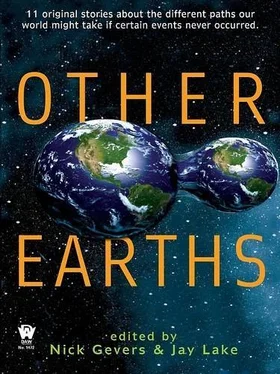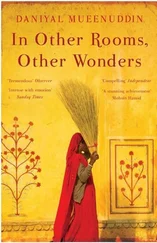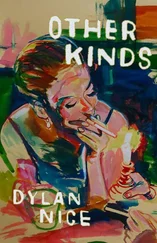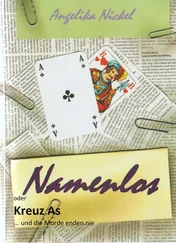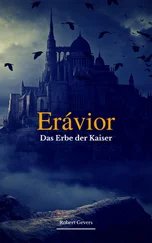Nick Gevers - Other Earths
Здесь есть возможность читать онлайн «Nick Gevers - Other Earths» весь текст электронной книги совершенно бесплатно (целиком полную версию без сокращений). В некоторых случаях можно слушать аудио, скачать через торрент в формате fb2 и присутствует краткое содержание. Жанр: Фантастика и фэнтези, на английском языке. Описание произведения, (предисловие) а так же отзывы посетителей доступны на портале библиотеки ЛибКат.
- Название:Other Earths
- Автор:
- Жанр:
- Год:неизвестен
- ISBN:нет данных
- Рейтинг книги:3 / 5. Голосов: 1
-
Избранное:Добавить в избранное
- Отзывы:
-
Ваша оценка:
- 60
- 1
- 2
- 3
- 4
- 5
Other Earths: краткое содержание, описание и аннотация
Предлагаем к чтению аннотацию, описание, краткое содержание или предисловие (зависит от того, что написал сам автор книги «Other Earths»). Если вы не нашли необходимую информацию о книге — напишите в комментариях, мы постараемся отыскать её.
Other Earths — читать онлайн бесплатно полную книгу (весь текст) целиком
Ниже представлен текст книги, разбитый по страницам. Система сохранения места последней прочитанной страницы, позволяет с удобством читать онлайн бесплатно книгу «Other Earths», без необходимости каждый раз заново искать на чём Вы остановились. Поставьте закладку, и сможете в любой момент перейти на страницу, на которой закончили чтение.
Интервал:
Закладка:
My eyes squeezed shut, clutching my wrist; it was all I could do at first to manage the pain. I knew the Colt had exploded, and my sole concern was the extent of my injuries. Though it bled profusely, the wound seemed minor—the explosion had sliced a chunk out of the webbing of skin between my forefinger and thumb. My ears rang, but I soon became aware of a breathy, flutelike sound and glanced at the fat man. He lay sprawled among his victims’ dirty laundry, head and shoulders propped against a crate, staring at me or, more likely, at nothing, for his eyes did not track me when I came to a knee; he continued to stare at the same point in space, whimpering softly, his pinkish complexion undercut by a pasty tone. He, too, was clutching his wrist. His hand was a ruin, the fingers missing, except for a shred of the thumb. With its scorched stumps and flaps of skin, it resembled a strange tuber excavated from the red soil of his belly. His lower abdomen was a porridge of blood and flesh, glistening and shuddering with his shallow breaths—it appeared that swollen round mass was preparing to expel an even greater abomination from a dark red cavity in which were nested coils of intestine. I’d never seen anyone’s guts before, and though it was a horrid sight, the writer in me took time to record detail. Then his sphincter let go, and revulsion overwhelmed me.
I staggered to my feet and spotted Bian frozen in the doorway, watching the fat man die with a look of consternation, as if she had no idea how to handle this new development. Dizzy, my head throbbing, I stepped over the fat man’s legs. I could do nothing for him; even had there been something, I wouldn’t have done it. Bian had retaken her chair in the front room and was fingering her 45s, the image of distraction. I sat opposite her, removed the first-aid kit from my pack, and cleaned my wound with alcohol. A thought occurred to me. I pulled out my English-Vietnamese dictionary and found the word for key.
“ Danh tu? ” I said, pointing to her chain. I went through several variant pronunciations before she grasped my meaning. She said something in Vietnamese and mimed plucking something from a hip pocket.
“Okay, I get.” She made a keep-cool gesture. “I get.”
I bandaged my hand, and as I secured the bandage with tape, the fat man, emerging from the safe harbor of shock, began pleading for God’s help, babbling curses, lapsing now and again into a fuming noise. Bian selected a record, fitted it onto the spindle, and his outcries were buried beneath the strings and fauxpomp of “MacArthur Park.” The music started my head to pounding, but it was preferable to hearing the fat man groan.
The sky had opened up, and rain was falling, a steady downpour that would last a while. I saw no reason to hang around. I repacked my rucksack and nodded to Bian, who responded in kind and gazed out the door, tapping a finger in time to the beat. As I walked down a weedy slope toward the park ranger’s shack, I could find in myself no hint of the profound emotion that was supposed to come with taking a life, with having violated this most sacrosanct and oft-breached of taboos, and I pondered the question of whether I would feel the same if I had killed a non-Cradle. I’d had a bond of sorts with the fat man, yet I had a minimal reaction to his death, as if the life I’d taken were mine by rights, thus negligible …though he might not be dead. Another song, “Nights In White Satin,” began to play, presumably to drown out his cries; yet I thought Bian might be unmindful of his condition and was simply luxuriating in the lush, syrupy music that she had taken refuge in during her months of enslavement. I marveled at the calmness she displayed upon exchanging captivity for freedom. Perhaps it was an Asian thing, a less narcotized appreciation of what Riel had known: Someone was always using you, and thus freedom and captivity were colors we applied to the basic human condition. Perhaps what was a clich’ in our culture bespoke a poignant truth in hers.
Writers tend to romanticize the sordid. They like to depict a junkie’s world, say, as edgy, a scraped-to-the-bone existence that permits the soul of an artist to feel life in his marrow and allows him to peer into the abyss. Many of them believe, as did Rimbaud, or at least tout the belief, that derangement of the senses can lead one to experience the sublime; but for every Rimbaud there are countless millions whose senses have been deranged to purely loutish ends, and I am inclined to wonder if le poete maudit achieved what he did in spite of drugs and debauchery, not because of them. Whatever the case, I was convinced, thanks in part to the example set by my gargantuan pod brother, that the sordid was merely sordid. I might be disagreeable and sarcastic, but my efforts to bring forth my inner Cradle had been pretty feeble: kinky sex and a smattering of mean-spirited thoughts. Those were minor flaws compared to murder and enslavement. If the trait for which the “animal” needed us had anything to do with our innate repulsiveness, that might explain why I felt its call less profoundly than the others.
It was midafternoon when I set out for the tea forest in a motor launch left by (if the fat man were to be believed) one or another returning Cradle, with the rain falling hard, drenching my clothes, and the sky as dark as dusk. Rain pattered on the launch, hissed in the reeds, and had driven to roost the birds that—so my guidebook attested—normally stalked the wetlands. I followed a meandering watercourse through marshes toward a dark jumbled line in the distance. My head was bothering me. I felt cloudy, vague, gripped by a morose detachment, and assumed I had suffered a mild concussion. Images of Kim, of Lucy and Riel (most of them erotic in nature), were swapped about in my head, as were concerns about the new novel, about my health, about what would happen now that the end of the journey was at hand, and a belated worry that Bian would report me for killing her captor. However, as I drew near the forest, a feeling of glory swept over me. I was on the brink of doing something noble and essential and demanding self-sacrifice. The feeling seemed to come from outside myself, as if—like mist—it surrounded the forest in drifts through which I was passing, emerging now and again, returning to my confused state.
At the verge of the forest, I cut the motor and glided in, catching hold of a trunk to stop myself. The melaleuca tea trees (there must have been thousands, their lovely fan-shaped crowns thick with leaves, extending as far as the eye could see) were between twenty and thirty feet high, and I estimated the depth of the water to be about four feet, lapping gently at the trunks. They cast an ashen shade and formed a canopy that shielded me from the worst of the rain. A smell of decomposition fouled the air—I wrapped a T-shirt about the lower half of my face to reduce the stench. Peering through the gloom, I spotted other boats, all empty, and bodies floating here and there, bulking up from the dark gray water, their shirts ballooned taut with gasses. The trees segmented my view, offering avenues of sight that were in every direction more or less the same, as if I were trapped in some sort of prison maze.
I restarted the motor and had gone approximately two hundred yards into the forest when I noticed a thinning of the trees ahead and a paling of the light that might signal a clearing; but I could not discern its extent or anything else about it. The bodies that islanded the water near the boundary of the forest were absent here, and this gave me; pause. I cut the engine again and surveyed the area, I could discern no particular menace, yet I had an apprehension of menace and reacted to every sound, jerking my head this way and that. Unable to shake the feeling, I decided a retreat was in order. I swung the boat around and was about to restart the engine, when I spotted a gaunt, bearded man sitting in the crotch of a tree.
Читать дальшеИнтервал:
Закладка:
Похожие книги на «Other Earths»
Представляем Вашему вниманию похожие книги на «Other Earths» списком для выбора. Мы отобрали схожую по названию и смыслу литературу в надежде предоставить читателям больше вариантов отыскать новые, интересные, ещё непрочитанные произведения.
Обсуждение, отзывы о книге «Other Earths» и просто собственные мнения читателей. Оставьте ваши комментарии, напишите, что Вы думаете о произведении, его смысле или главных героях. Укажите что конкретно понравилось, а что нет, и почему Вы так считаете.
